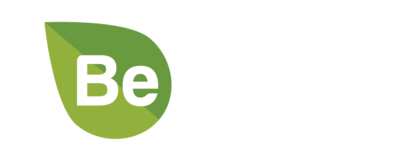New Study Says Beans and Peas Are More Filling Than Meat-Based Meals

With the Brazilian Rainforest being clear-cut for cattle ranching, and the latest studies from Harvard and Stanford stating that we can live longer be reducing our meat intake, a study from the University of Copenhagen’s Department of Nutrition Exercise and Sports offers some great news. While supporting the environment, protecting habitat loss for thousands of Amazonian animals and contributing to our own longevity, we can stay full on simple beans and peas.
The researchers found that people stay satiated on legumes like black beans, garbanzos, Navy beans, Red beans, lentils and peas better than if they were to dine on steak, veal, pork or chicken. This is great news for people wanting to be healthier and lose weight. A plant-based protein source comes to the rescue once again!
Eat 12% Less Just by Consuming Beans, Lentils and Peas
The study was conducted by feeding 43 different young men eating patties which were primarily made of either veal and pork or beans and peas. Those who ate a protein-rich meal ate 12% fewer calories at their next meal than if they had eaten just a meat-based meal.
Head researcher, Professor Anne Raben said, "The protein-rich meal composed of legumes contained significantly more fiber than the protein-rich meal of pork and veal, which probably contributed to the increased feeling of satiety.”
The study also proved that it isn’t just protein that helps us to lower our overall caloric intake, as is often assumed for many people who shun carbs and participate in other diets.
Professor Raben explained, "It is somewhat contrary to the widespread belief that one ought to consume a large amount of protein because it increases satiety more. Now, something suggests that one can eat a fiber-rich meal, with less protein, and achieve the same sensation of fullness. While more studies are needed for a definitive proof, it appears as if vegetable-based meals -- particularly those based on beans and peas -- both can serve as a long term basis for weight loss and as a sustainable eating habit.”
Prevent Osteoporosis and Kidney Disease
The Copenhagen study is also good news, considering the other health ramifications of eating too much meat-based protein. Osteoporosis and kidney disease are often caused by a high-protein diet. This type of protein consumption can cause calcium to be leached into the urine from our bones. This mineral is important for many functions in the body, among them fighting acidity.
Furthermore, the kidneys have to work harder to dispose of an over-abundance of wastes created by eating too much protein, slowly killing off the nephrons, our kidneys’ filter units, in the process.
Eight Essential Amino Acids
Though protein is an essential element for our bodies, what we really need are the eight essential amino acids. The eight essential amino acids are valine, isoleucine, leucine, phenylalanine, threonine, tryptophan, methionine and lysine.
When we stick to plant-based protein, we get what we need, but usually not an overabundance. Along with the plant-based protein, we also consume thousands of important trace minerals, macro-nutrients and micronutrients, fiber and plant compounds that fight disease, scavenge free radicals, boost our immune system and keep us at a healthy weight.
The eight essential amino acids can all be eaten with a plant-based diet. Foods like quinoa, buckwheat, mycoprotein, organic soy, rice and beans, millet and spelt, hummus and pita, etc. all contain the essential (protein-based) nutrients you need without ever eating a single piece of meat.
Fiber, Fiber and More Fiber
The age-old practice of eating beans isn’t healthy so much for the protein they contain, but for the ‘roughage’ or insoluble fiber they have. The more insoluble fiber we consume, the less likely we will carry food in our bodies that will tend to sit and putrefy in our guts, causing all manner of digestive ailments and disease.
All Calories Are Not the Same
While we obsess about calories, what we should really do is add more fiber, while eating more fruits, vegetables, beans and legumes. All calories are not the same. A spoonful of beans or legumes will be processed in the body much differently than say, a bite of a fast-food hamburger.
The Easiest Way to Add More Fiber
How can we easily add more fiber into our diets? Eat more beans, and legumes, followed by vegetables, fruits and whole grains (not processed). If you aim for eating at least 40 grams of fiber per day, you will find you feel full, feel healthy and have lots of energy because your body isn’t over-worked trying to digest food it wasn’t meant to digest.
Breakdown of fiber content in common beans and peas:
1 cup of lentils = 60 % fiber
1 cup of garbanzo beans (chickpeas) = 50% fiber
1 cup of black beans = 60% fiber
1 cup of green peas = 30% fiber
In summary, vegetarians and vegans who eat beans and lentils will not only get all the essential amino acids they need, but they are also getting plenty of fiber to keep them full. This can support our overall health, support the planet and keep our clothes fitting the way we want them to. Eat less and eat right with beans, peas and lentils. Even the science now supports these staple vegetarian foods.
Do you have some favorite bean and lentil recipes? Be sure to tag Be Herbal when you share them to Facebook, and mention this article to support your great eating habits.
Leave a comment
Also in Articles on Healthy Lifestyle Tips, Herbal Supplements and More



